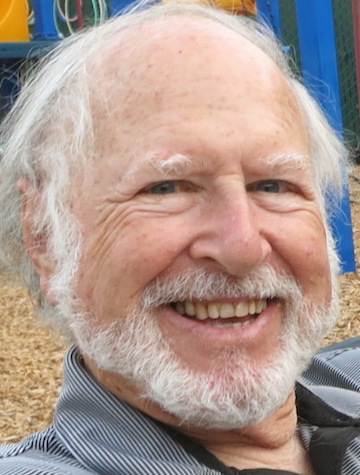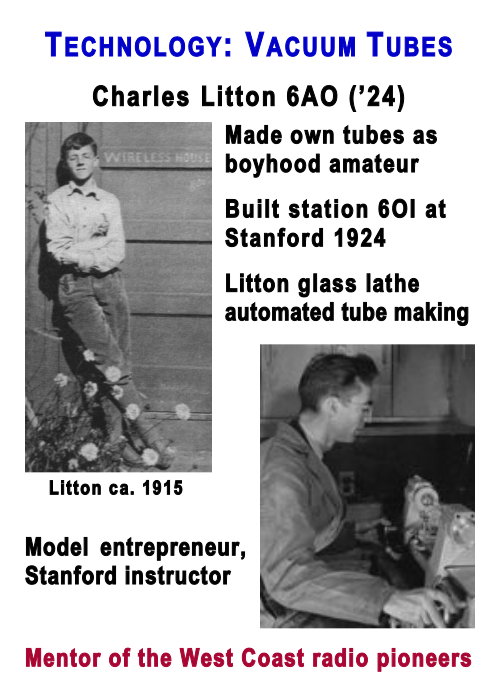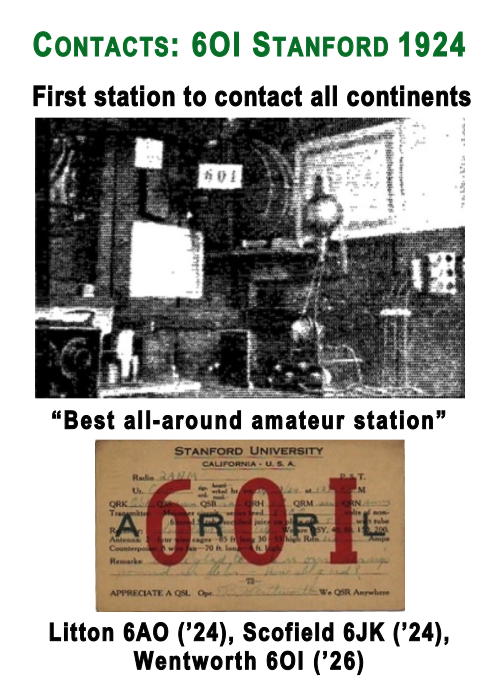| Who: | Stanford Prof. David Leeson |
|
What: |
"Stanford and Silicon Valley: How Amateur Radio |
| Where: | Zoom (link) Meeting ID: 958 6960 4465 Password: 590327 |
| When: | Tues, Nov. 10th at 7:30pm PT |

David Leeson
Stanford and Silicon Valley: How Amateur Radio Launched the Chain of Events
Today's monumental eminence of Stanford and Silicon Valley did not happen overnight; rather, it is the outcome of a hundred-year chain of contingent events that arose from an early nurturing fertile environment. A consideration of the roots and prehistory of the present-day outcome can provide valuable guidance for individuals, entities and regions seeking to identify new emerging areas of opportunity before everything is cast in concrete.
In the period from the 1920s through the 1950s, momentous societal events included the revolution in atomic and nuclear scientific understanding, the Depression and WWII. In the Depression, Stanford was facing great financial difficulties. In radio and electronics, little room was available in those days for independent development in the face of the established patent monopolies of the Radio Corporation of America (RCA) and the national telephone utility (AT&T).


But on the US West Coast, a unique cooperative regional culture, especially of radio amateurs, enabled a small number of research and business enterprises to respond and seed fertile new ground in vacuum tubes, radio, microwaves and particle accelerators. Then in WWII, these individuals and companies played greatly increased national roles, establishing their claim to further advances in these areas on a much larger scale.
The postwar business successes of Stanford Industrial Park microwave companies, coupled with the historic $100 million funding of the Stanford Linear Accelerator, brought the area to readiness for the next phase, the establishment of semiconductor and computer businesses here. This chain of events resulted in the emergence of Stanford as an international research institution and of Silicon Valley as the model of overarching success in new technologies.
With the technological changes now underway in response to our current novel world situation, might this be a similar time of the emergence of new opportunities? If so, what can we learn from the prehistory of Silicon Valley about the hallmarks of a supportive culture that might support fruitful new beginnings?
Slides available here
